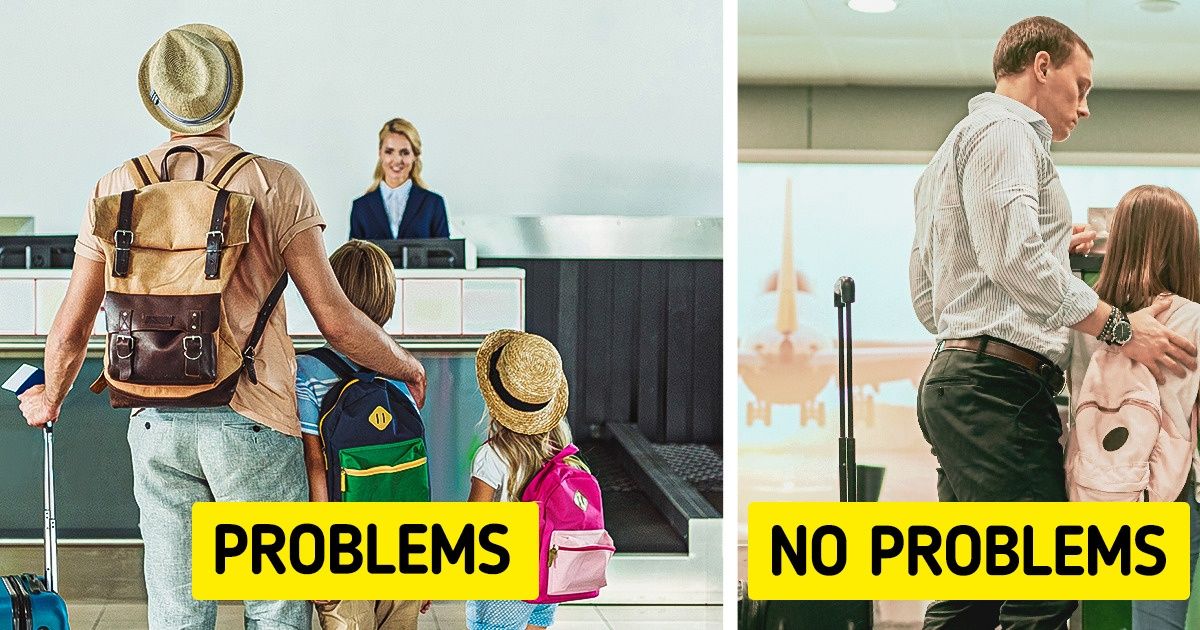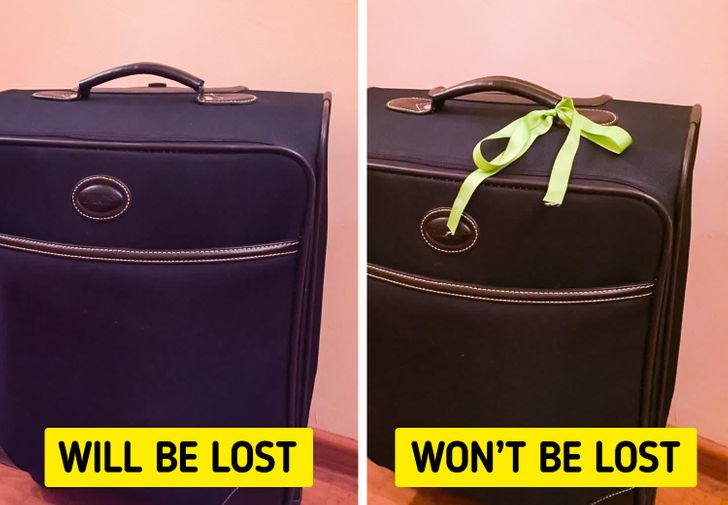17 Awkward Dates That Quickly Spiraled Out of Control


In 2018, the number of plane passengers was over 4.3 billion people. When we’re planning to travel by plane, we all hope to go through the many procedures quickly and get a comfortable seat next to quiet, calm neighbors. But even on a clear day, a flight can be stressful. It can be delayed or canceled, the line to the check-in counter may be huge, jetlag can be disorienting, the turbulence can get scary, and the price of drinks on the plane doesn’t make our mood any better. But there are ways to avoid — or at least minimize — the reasons to worry before a flight.
Bright Side learned more about what you definitely shouldn’t do before a flight in order to travel comfortably.
When preparing for a flight, think about the surfaces you will have to touch, how small the seats will be, and how much the temperature might fluctuate. Don’t wear shorts or short skirts, it’s better to wear light pants or a long dress. Planes are not cleaned very well between flights, so the seats and the tables might be pretty dirty. Don’t use clothes that are difficult to put on and take off. The bathrooms on planes are really small, and if you’re wearing overalls, you’ll have a hard time.
For long flights, it’s recommended to use compression legwear. It improves blood circulation and prevents leg swelling. And they don’t always look like medical clothes — a lot of them are actually quite stylish.
Dr. Garshick says that we should always use sunscreen if we’re flying during the day. Even though the plane windows partially block UVB and UVA, they can still damage the skin and the radiation is pretty intense at higher altitudes.
Beautician Isabelle Bellis from New York recommends putting some oil on the skin and then moisturizing cream before a flight to prevent the loss of moisture. Some passengers sprinkle their faces with thermal water or wear some textile masks on the plane, but such solutions only dry the skin even more. Besides, regular thermal water contains salt, and just like the dry air on the plane, this can suck the moisture out of the skin.
Don’t forget to download the app for the airline that you’re using and put your booking data in. It will make the check-in process easier and help you with information on delays or changes to the gate. Most airlines offer some free entertainment for passengers that have these apps on their phones.
Before leaving home, learn about the conditions of the Internet service at the airport. You might need a Wi-Fi connection to learn about sudden changes in the flight schedule. Many airports have free Wi-Fi, but be careful — there might be hackers. Using antiviruses and VPNs can help you protect your most important data. VPNs make sure that the traffic is safe: the data is encrypted and sent to a server that changes your location.
Don’t wear shoes with heels or rough, chunky boots. It’s better to put on some comfortable shoes without laces. Airline workers advise not to wear heels and open shoes due to safety precautions. In case of an evacuation, heels might pierce the inflatable ramp. And if you’re wearing sandals, you might get cold, especially on a long flight. Besides, visiting a bathroom in open shoes is never a good idea because something might get on your feet.
Taking part in loyalty programs is a huge advantage if you want to get a service upgrade. Some airlines allow you to get an upgrade to just 1 class higher, which could be from “economy” to “premium economy,” from “premium economy” to “business,” or from “business” to “first class.” Active travelers claim that getting an upgrade has become more difficult because all companies want to maximize online check-ins for the flight. However, if you visit the airport in advance, you can try and ask for an upgrade, and maybe you’ll get lucky.
Insurance companies recommend putting paper copies of documents into your carry-on luggage and every bag you have. This might be helpful if you lose your passport or ID or the airline loses your luggage and you’re forced to prove that the bag is yours. Also, it’s better to make digital copies of your documents.
Look over the passengers that are standing next in line for passport control. Try not to follow people that might need additional checking. For example, a child traveling with one parent needs additional papers. If you see a person that doesn’t have their papers ready, it’s better to stand a different line if possible.
If you don’t like waiting at the airport and don’t want to be late for your flight, use special applications to find out how long it will take for you to go through security checks at certain airports.
If you’re going to have a connecting flight in a different country, check the local time. Don’t trust your phone because it might not update to the correct time zone in time.
Even if you’re not planning to listen to music or audiobooks for the entire flight, experienced travelers recommend taking good headphones with noise-cancelation. They will allow you to ignore a crying baby or other loud passengers next to you.

Getting to try local food is one of the best things about traveling. But before a flight, it’s better not to go to a street food place you don’t know and to ignore a server’s recommendation for a great local meal. Otherwise, you might find yourself in a very uncomfortable situation. The food we eat at home might be very different from what we might eat somewhere else. This is why it’s impossible to predict how your stomach will react. What you should be especially careful with is spicy food — it’s notorious for creating discomfort in the stomach. Spices, like chili, contain capsaicin that irritates the body and can cause diarrhea. It’s better not to eat anything like this before a flight.
Most airports have a limit on the amount of liquid you can bring in. You should know that it’s not only about drinks and beauty products. For carry-on luggage, it’s better not to take toothpaste, sprays, gels, fish and meat, frozen foods, oil, and yogurt.
You can’t take a bottle of water through security at the airport but you can bring in an empty bottle and fill it after passing through. And typically, bottled water in the airport is several times more expensive than it is anywhere else.

In a hurry, travelers often pick up someone else’s luggage. To avoid such problems, put a bright ribbon on the bag to make it different from all the other black and dark blue bags.
When buying a ticket, it’s important to pay attention to weight limitations. If you exceed the limitation, you might have to pay extra. If your bag turns out to be heavier than it should be, wear clothes with pockets to fit in some heavy items during the check.
Trying to save money, travelers often choose flights at night. But it sometimes leads to even bigger expenses. The public transport doesn’t work at night, so you’ll likely have to pay for a taxi. Many hotels require additional payments for early check-ins. At night, in many airports, cafes and stores are closed, so there’s nothing to eat.
What flight secrets do you know and use to make traveling more comfortable?











